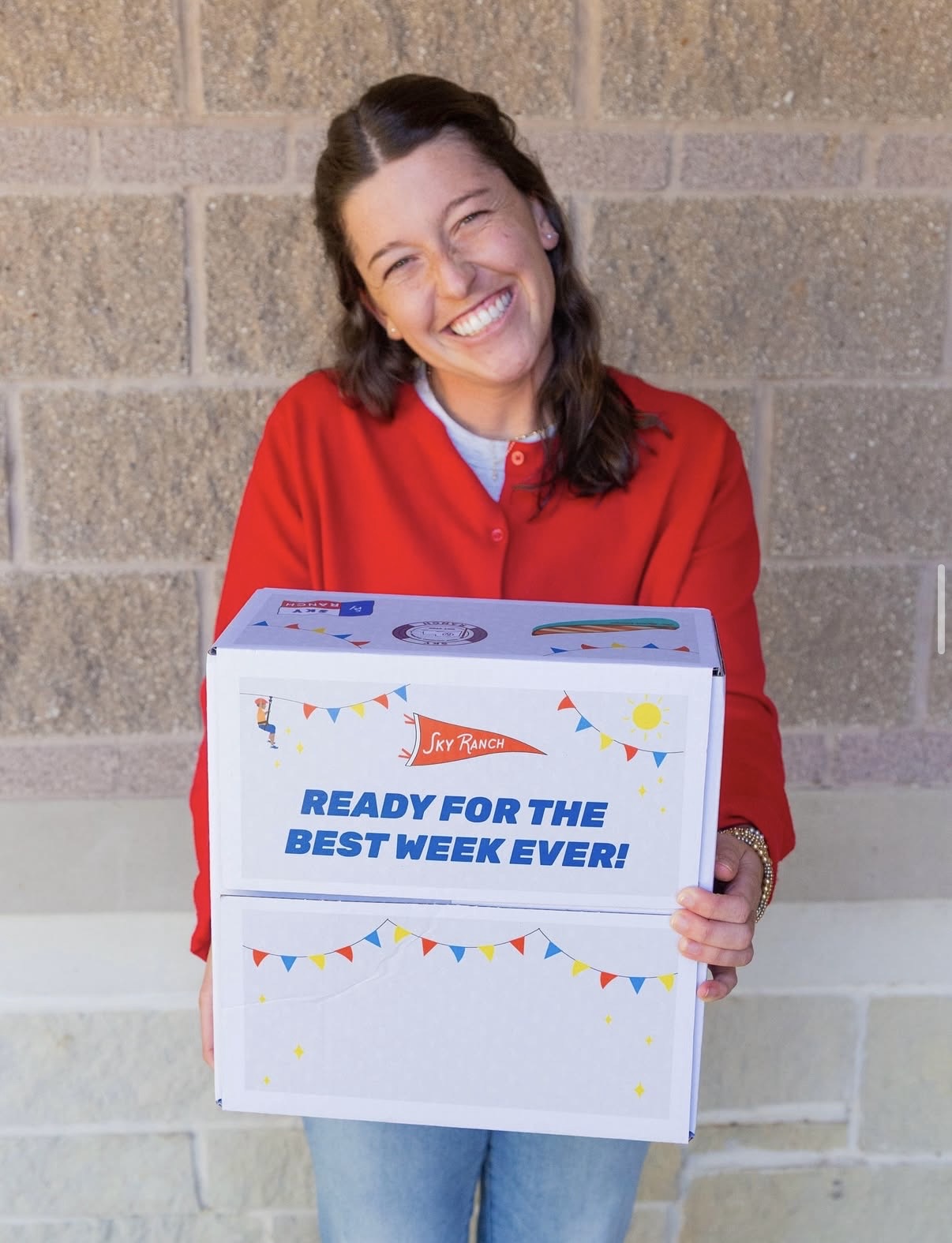
Carrying Burdens – Chloe Prochaska
Sigmas are asked to pick up rocks at the bottom of the mountain. We tell them that the rock they select must stay in their hand the entire hike- including the lunch break and any activity throughout the day. We also tell them that their rock represents a burden, and we will discuss more about our burdens when we get to the top!
Last summer—two hours before campers arrived for Session 5—I received a devastating phone call. One of my dearest friends from college had been killed in a car accident. Besides being immediately hit with the pain of mourning, I was also instantly tangled with thoughts of inadequacy, failure, shame, and guilt.
The enemy whispered in my ear as I mourned the death of my friend. I heard him tell me I was a bad friend, I hadn’t loved her well, I should’ve spent more time with her, I could’ve talked with her more about Jesus. I felt inadequate to mourn her death; I felt like I wasn’t allowed to feel sorrow or miss her because I hadn’t been “good enough” to. She deserved more, and I had failed. I lived with the shame and guilt of failing her as a friend for almost a year. I hated talking about her with other people because it was a constant reminder of someone I wish I had loved better; a relationship I had failed. Carrying around this guilt and shame was my burden.
This is a burden that I was not intended to carry. If I think I struggle with shame and guilt, I’m actually mistaken. I don’t struggle with shame and guilt—I struggle with understanding the gospel. If I truly understood what Jesus did for me, I wouldn’t walk around trying to carry my burdens and my sin alone. I would let go of them, and let him carry them for me.
I’ve been reading through Matthew, and there’s one part that blatantly stands out to me in verses 9:1-8:
Jesus stepped into a boat, crossed over and came to his own town. Some men brought to him a paralyzed man, lying on a mat. When Jesus saw their faith, he said to the man, “Take heart, son; your sins are forgiven.”
I don’t think it’s an accident that Jesus forgives the man’s sins BEFORE he heals him later in the chapter. Everything is secondary in comparison to understanding Jesus and what he did for us. This man was paralyzed, he literally couldn’t walk, and Jesus wanted him to recognize that he was FORGIVEN before anything else. This story is such a beautiful picture of how much God loves us. He reminds us that we are forgiven first and foremost! And this is so important! It’s so important that he reminds us of it even before he heals our physical needs.
The point I want to make here is this: God deeply desires that we receive his forgiveness. He doesn’t want us to live in guilt or shame or regret, he wants us to drop our burdens and live in freedom. When we carry our burdens with us, it is impossible to live the life God has called us to. In Ephesians 4:1, Paul encourages us to “live a life worthy of the calling [we] have received.” For me, I know God has called me to spread his joy with others. However, it is impossible for me to live-out my calling when I’m weighed down by burdens, or carrying a backpack full of rocks. So: drop your rocks! Through them down! And realize the power of the gospel. Jesus died for you so you could run in freedom, not carry a bunch of unnecessary rocks.


